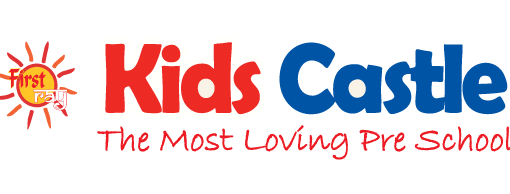Speaking more than one language is a remarkable talent in today’s linked world and an asset that can lead to many chances for your child. Given the importance of English worldwide, parents frequently prioritize ensuring their kids are fluent. But there’s so much more to be gained from your kids being multilingual, so nudge them to learn various languages. The advantages go beyond simple communication, regardless of whether individuals acquire bilingualism, multilingualism, or even polyglotism.
What Makes Someone Bilingual vs. Multilingual?
Before delving into the many advantages of multilingualism, let’s define a few terms.
A monolingual person is conversant in one language, while being multilingual is being skilled in more than two languages. A bilingual person speaks two languages fluently. Multilingualism is essentially a continuation of bilingualism; both are precious abilities, but your child will benefit more if they learn more languages.
Cognitive Benefits of Being Multilingual:
Learning a new language is like exercising your child’s brain. Studies indicate that bilingual or multilingual children frequently exhibit superior creativity, improved memory, and problem-solving abilities compared to their monolingual counterparts. The brain’s ability to perceive, negotiate meaning, and communicate in various linguistic systems is strengthened as one learns a new language.
Additionally, learning multiple languages can help your child become more adept at multitasking and task-switching. Their brain’s training to switch between languages, frequently throughout a single speech, gives them this cognitive flexibility. Such mental dexterity helps students succeed academically and equips them to deal with challenging circumstances in various real-world scenarios.
Cultural Sensitivity and Awareness
Acquiring knowledge of a foreign language extends beyond its lexicon and syntax it serves as a means of penetrating another society. Your child learns about the values, practices, and traditions of the people who speak the language when they become fluent in a second or third language. This cultural sensitivity encourages empathy and aids in your child’s worldview development.
A great advantage in our more globalized society is adapting and being sensitive to cultural differences. Children who speak multiple languages are frequently more accepting of others and more able to enjoy the diversity in their environment. Early on, they discover several approaches to thinking, behaving, and engaging with the world; these perspectives can significantly impact their character and relationships in the future.
Professional and Academic Benefits
Multilingualism has real benefits for academic and professional settings, as well as cognitive and cultural benefits. Research has indicated that children who speak more than one language score higher on standardized examinations, especially in reading, math, and vocabulary. Learning many languages requires focus and dedication, which transfer to other academic subjects and give your child an advantage in their academics.
Benefits for Emotion and Society
Language is an effective instrument for building and nurturing relationships. Children who speak multiple languages frequently find it simpler to make friends from other social groups and cultural backgrounds, which strengthens their social network and emotional intelligence.
Additionally, teaching your child a language might help them feel more confident. Gaining confidence from learning a new language is a great accomplishment that can benefit your child in several aspects of their life. It reaffirms that the child can face obstacles, overcome them, and succeed—a priceless lesson that will benefit them greatly in life.
The Charm of being Multilingual
In certain parts of India, polyglots—people who speak many languages, frequently five or more—are common. However, as the multilingual Hungarian Kato Lomb who was fluent in over 16 languages, demonstrated, acquiring languages is limitless for those who possess curiosity, enthusiasm, and perseverance.
Our Indian polyglot, Harinath De knew 34 languages.
Supporting your child in acquiring multiple languages could begin an exciting linguistic adventure that enhances their life in ways you would never have thought possible.
Begin Early, Motivate Frequently:
Once we agree that a multilingual child has advantages, the next step is to begin early and provide frequent encouragement. Children are naturally predisposed to acquire languages since their brains are most responsive when young. Introduce them to different languages through books, games, songs, and conversations with native speakers. Instead of viewing language acquisition as a duty or a chore, foster an atmosphere where it is an enjoyable and interesting aspect of daily life.
Recall that the objective extends beyond enabling your youngster to place a holiday meal order in a foreign language. It’s about equipping children with the knowledge and skills necessary to think outside the box, engage with people on a deeper level, and function in an increasingly connected society. Investing in your child’s multilingualism is an investment in their future, one in which they will be able to successfully navigate the cultural, social, and cognitive spheres as true global citizens.
Conclusion:
Being multilingual is ultimately about helping your child reach their full potential and broaden their perspectives, not merely picking up a few new words here and there.
On a side note, did you know people in certain parts of India are multilingual by default? Let us know what you think in the comments below.
You have the exceptional chance to cultivate this amazing gift as parents. Why not begin right now?
Feel free to Contact Us for any inquiries, assistance, or further information!

